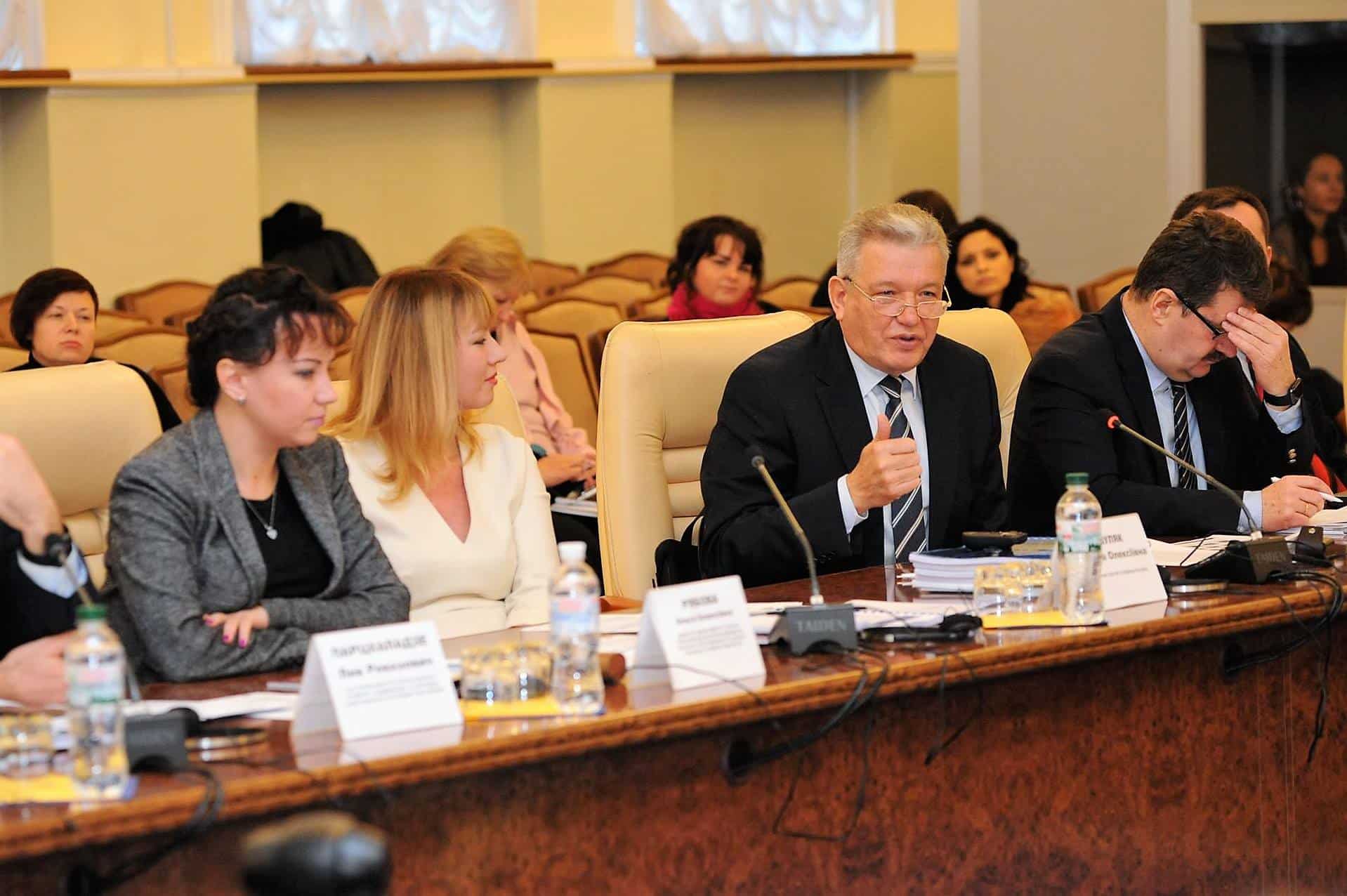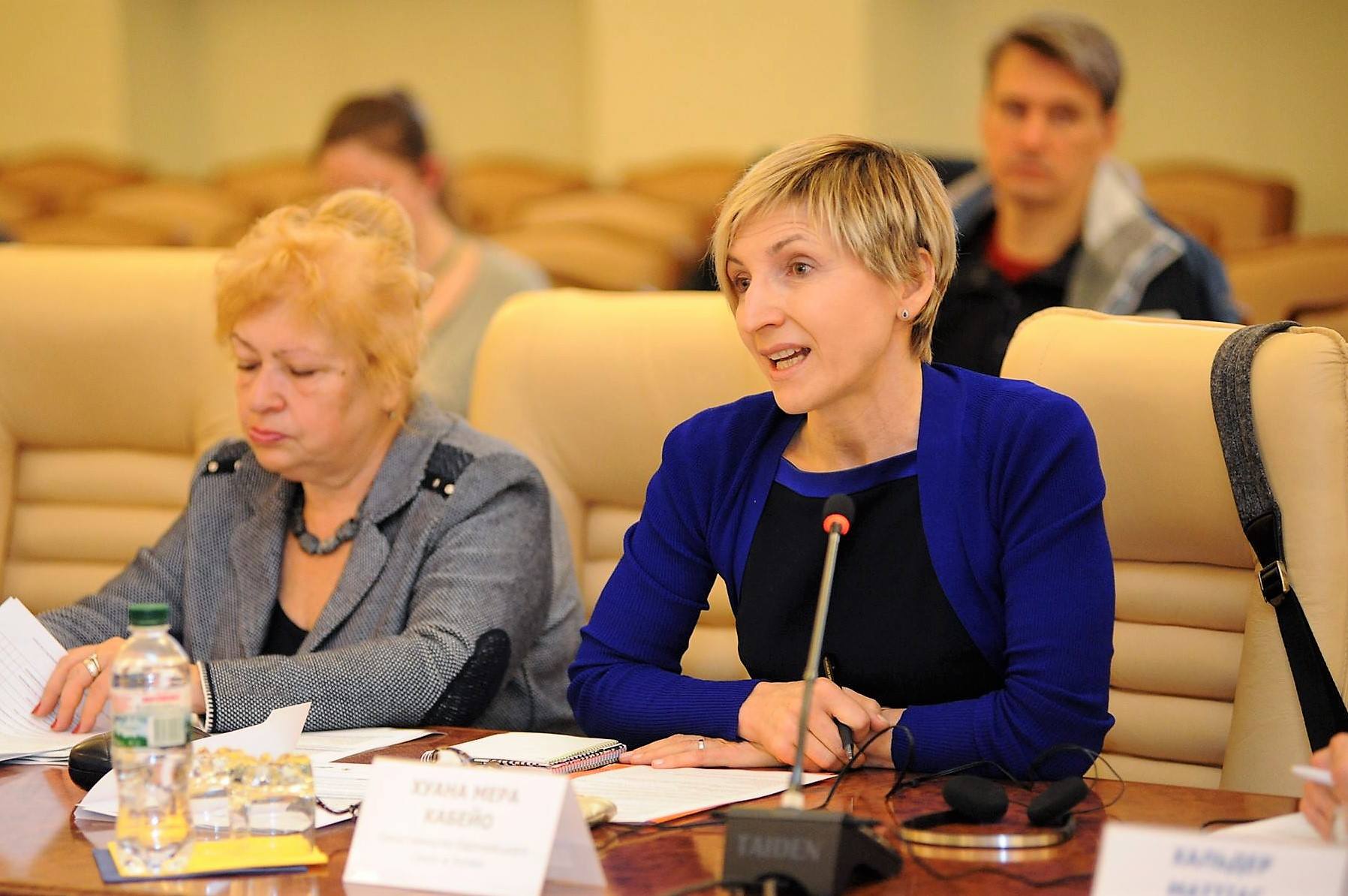Cement is the main material of modern construction in Ukraine, which is the most widely used binding material as well as the main component of concrete. At current production rates, Ukraine is provided with cement raw materials for 320 years, but produces less products than consumes with a tendency to increase imports. Ukraine has the second lowest cement production rate per capita in Europe – 213 kg by the results of 2016. For comparison: it is 489 kg in Poland, in Germany – 342 kg.
Despite the relatively stable production volumes, the cement market has a number of problems that can seriously affect the development of the construction industry in Ukraine. Today, there are 24 enterprises operating in the market and ¾ of them are loss-making. The cost of regulation for one enterprise, which produces cement, is 400 thousand hryvnas per year.
The government, business and public representatives discussed the ways for solving the market regulation issues during the round table “European quality of Ukrainian cement: risk factors” organized by the Better Regulation Delivery Office (BRDO) with the support of EU4Business\FORBIZ and the Ministry of Regional Development as part of the Public Dialogue #PRODialogue on November 14.

“We have planned to review the regulation of 48 construction markets together with the BRDO Office this year. The market of cement has great prospects: about 9 million tons of cement are produced annually in Ukraine, but these volumes do not cover all existing demand. Due to ineffective regulation of the sector, the quality of construction materials deteriorates and consumers are not protected. It is important to adopt modern efficient production technologies and create conditions for medium and small enterprises to access the market, especially in the regions. We will not simply state the problems, instead, we will formulate particular proposals for more effective regulation of the cement market,” the Deputy Minister of Regional Development, Construction, Housing and Utilities of Ukraine Lev Partskhaladze said when opening the event.
The Better Regulation Delivery Office (BRDO) found out that 11 from 41 acts regulating the market should be updated. Moreover, the analysis of regulatory instruments and related procedures revealed a high level of corruption risks. The existing regulation hinders the development of the market and does not guarantee the protection of consumers from counterfeit products. The coefficient of counterfeit cement among products with marking violations in the market is about 80%. 60% of products do not meet the strength criterion. In some cases, the indicator, on which the strength of construction materials depends, is 5 times lower than the national standard.

“The ineffectiveness of market surveillance mechanisms in Ukraine, as well as the lack of adequate accountability of certification bodies and the relevant information on revoked certificates allows unscrupulous producers to provide the market with poor-quality counterfeit cement. From January 1, 2018, when the system of mandatory certification of products UkrSEPRO* is abolished, the state will not have any instruments to control the quality of construction materials at all,” the Construction Sector Head at BRDO Olena Shulyak said.
In addition, according to the expert assessment of BRDO, the current legislative framework for technical regulation of the market is an obstacle to the introduction of new technologies and the entry of producers into international markets. Export opportunities are limited by the need to certify products according to international standards. Currently, there are two certification systems in the cement market: outdated Soviet and European ones. This dual regulation creates numerous gaps in technical regulation and complicates the market operation.

Having taken on obligations under the Association Agreement with the EU, Ukraine should harmonize the national standards for construction products with European ones, in accordance with the EU Regulation 305/2011. This will help reduce non-tariff barriers for the development of export-import operations.
“The EU Delegation through the EU4Business\FORBIZ project works closely with the BRDO Office to create better conditions for the development of small and medium-sized businesses in Ukraine as well as to implement the provisions of the Association with the EU. The market of cement is one of the key sectors for the country’s economy, given its capabilities for infrastructure development. Therefore, it is very important to find the best regulatory practices that can fully develop it and take to the next level,” the Head of Section “Economic Cooperation, Social and Regional Development” of the EU Delegation Juana Mera Cabello says.
Ukraine is planning to fully implement provisions of the EU Regulation 305/2011, which establishes harmonized conditions for placing on the market of construction products, by 2020. That is, the first development and adoption in 2017-2020 requires 377 harmonized standards.

Pavlo Kachur, the Head of the Association of Cement Manufacturers “Ukrcement”, Oleh Tsilvik, the Deputy Chairman of the All-Ukrainian NGO “Union of Consumers of Ukraine”, representatives of the Ministry of Economic Development and Trade, the State Regulatory Service, business, the expert environment and the public also took part in the round table.
The results of this discussion will be used as the basis to develop proposals for legislative changes in the cement market.
*The Law of Ukraine “On Technical Regulations and Conformity Assessment” will cancel the system of mandatory certification of products UkrSEPRO on January 1, 2018. There is a need to resolve the issue before the introduction of the Law of Ukraine “On Basic Requirements for Buildings as well as Conditions for Placing on the Market of Construction Products”.